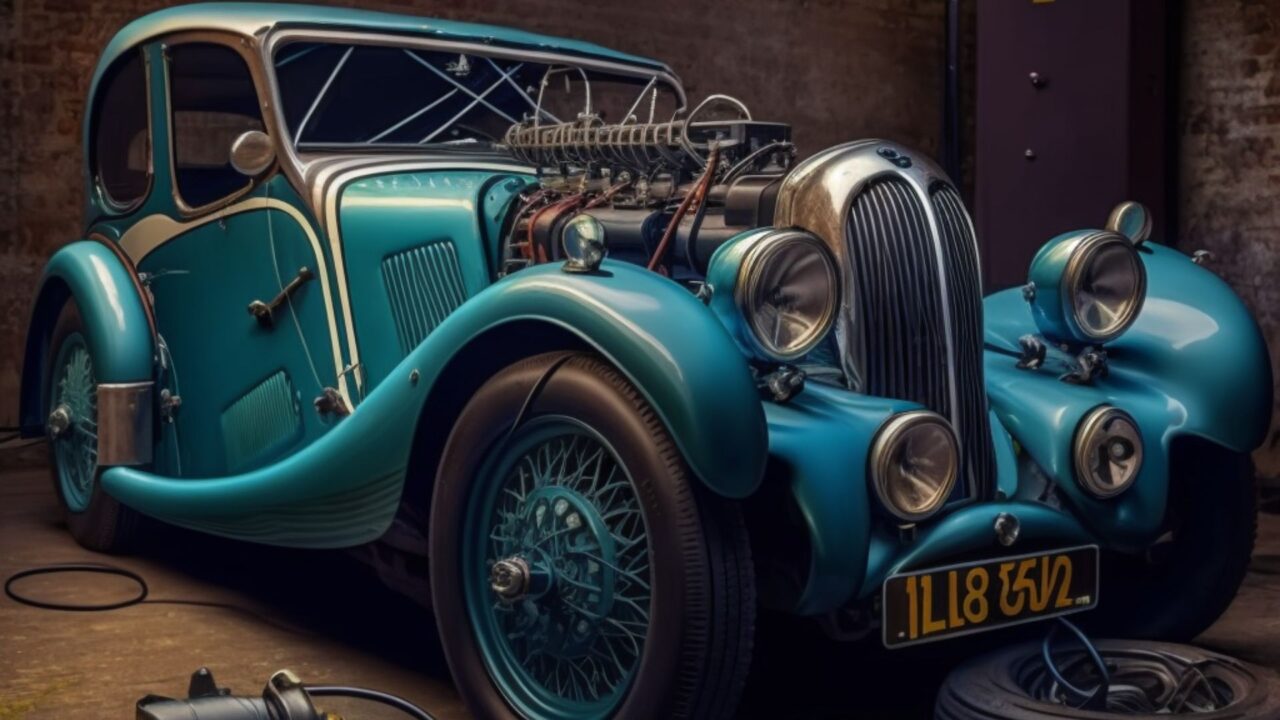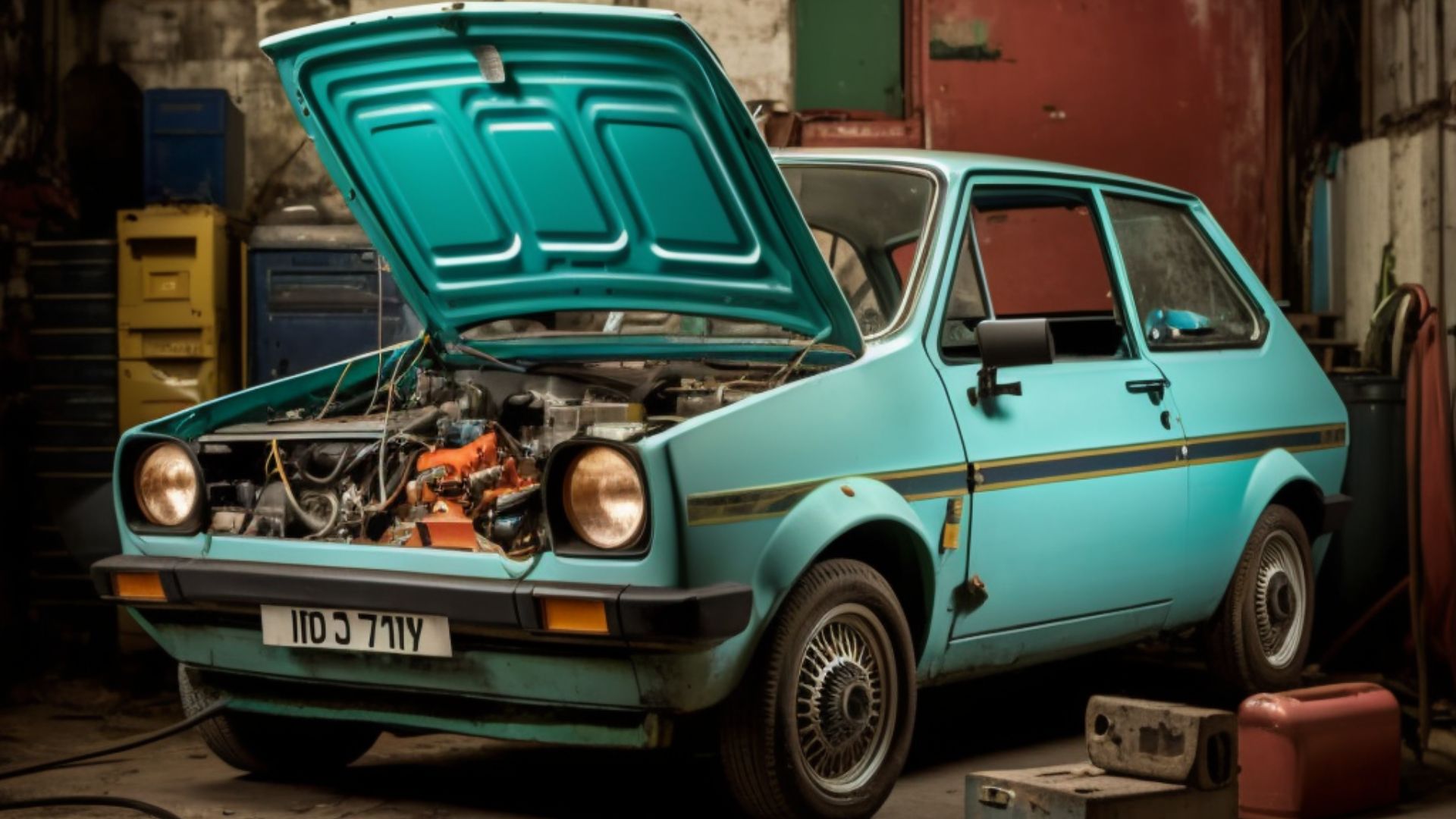The future of cars is electric. So could converting petrol-powered cars to electric be the next option? Explore the potential of electric car conversions.
Converting your petrol car to electric
With the world’s increasing focus on sustainability and reducing carbon emissions, the demand for electric vehicles is on the rise. However, with a limited selection of affordable electric cars on the market, some car enthusiasts are turning to electric car conversions as a way to reduce their carbon footprint and still drive their beloved vehicles. Could this trend be the start of a new industry?
Think about it, iconic models like the Rolls-Royce Phantom, Jaguar XK120, and Bentley S2 can be given a new lease on life with modern pure electric motors and batteries. Not only does this make these beauties more eco-friendly, but it also gives them better performance and reliability.
These electric car conversions retain that nostalgic feel while offering modern amenities like air conditioning, satellite navigation, and Bluetooth connectivity. And let me tell you, some of these conversions can reach 0-60 mph in under five seconds. So you can still get that driving thrill with cheaper running costs!

The conversion process
The conversion process is of course no easy feat. Conventional cars need to be stripped down and rebuilt from the ground up with a new electric powertrain, suspension and brake alterations and other components. You can even upgrade the interior with modern materials and technology while retaining the car’s original design cues.
It’s truly a labour of love but well worth it for those special pieces of automotive history. With governments worldwide imposing restrictions or bans on fossil fuel-powered vehicles, these conversions can also help future-proof our most loved classic cars.
Car conversion companies
Picking up on this trend, there are several UK companies that specialise in converting traditional petrol or diesel cars to electric vehicles (EVs). Here are a few examples:
Electric Classic Cars specialise in converting classic cars to electric power. They offer a range of conversion services for models such as the Volkswagen Beetle, Porsche 911, and Jaguar E-Type.
RBW EV Classic Cars offer electric conversions for classic British cars such as the MG B, MGB GT and the Jaguar XK120.
Electrogenic are based in Oxfordshire, Electrogenic specializes in converting classic and modern cars to electric power. They offer a range of conversion packages for models such as the Land Rover Defender, Porsche 911, and classic Mini.
Electric Car Converts, offers EV conversions for a range of vehicle types, including vans, trucks, and classic cars.
Lunaz is a quintessentially British company that’s transforming classic cars with electric powertrains and upgrades.
Now, I know what you’re thinking. These electric conversions must cost a pretty penny, and you would be right. Some conversion prices can start at around £350,000. But for those who appreciate the unique combination of classic style and modern technology, it’s worth every penny. For example, Lunaz has even received recognition for its work, being named in TIME Magazine’s list of the 100 Best Inventions of 2020.
So could this happen for other less valuable vehicles?
Yes, it could, but for most of us, converting a car to electric is not a DIY job, but it can be done.
You could consider buying an electric car conversion kit, which allows you to undertake the conversion yourself. You can get hold of books like, “Convert It!: A simple step-by-step guide for converting any classic car into an electric vehicle”. Plus, AutoExpress has a comprehensive list of conversion companies and kits too.
A great resource to look at is the eveurope.eu and their EV hypE videos are a great source of information about conversions. Plus they provide full conversion kits, battery packs as well as individual parts for your needs and they have some used parts in stock to help keep the costs down.
If you are considering going for it, you shouldn’t skimp on the motor as the motor is the key to your car’s performance. You don’t want to put in all that effort only to end up with less-than-pleasing results. The top-performing motors for most DIY projects are the Netgain Hyper-9 HV motor or the HPEVS 50/51 models.

Batteries are also a crucial component, and you’ll need a car with enough space for them also. The Lithium Iron Phosphate (LiFePO4) cell is considered the best option for most electric car conversion projects due to its size, cost, weight, and power for your DIY electric car. LiFePO4 cells usually come in 3.2 to 3.5-volt variations, and there are many different sizes and capacities available.
So what about the costs?
Well as you can see, these can vary massively. Some would suggest you can do this for upwards of £3000. A more complicated conversion of an older or rarer model could cost you anywhere between £10,000 and £30,000. Don’t forget that you could sell some of the parts you no longer need such as the engine, the catalytic converter and exhaust system and the fuel tank to reimburse some of those costs.
Remember too, there are some legal requirements that you’ll need to fulfil. You’ll need to re-register your vehicle with the DVLA as “radically altered” with evidence of the conversion process, including photographs and receipts.
In short, electric conversions offer a perfect blend of timeless design and cutting-edge technology, giving classic car enthusiasts the best of both worlds. They’re an incredible option for those who want to enjoy classic motoring without harming the environment, and the best part is you can keep your most loved car going for even longer.

2 thoughts on “Electric Car Conversions”
Comments are closed.